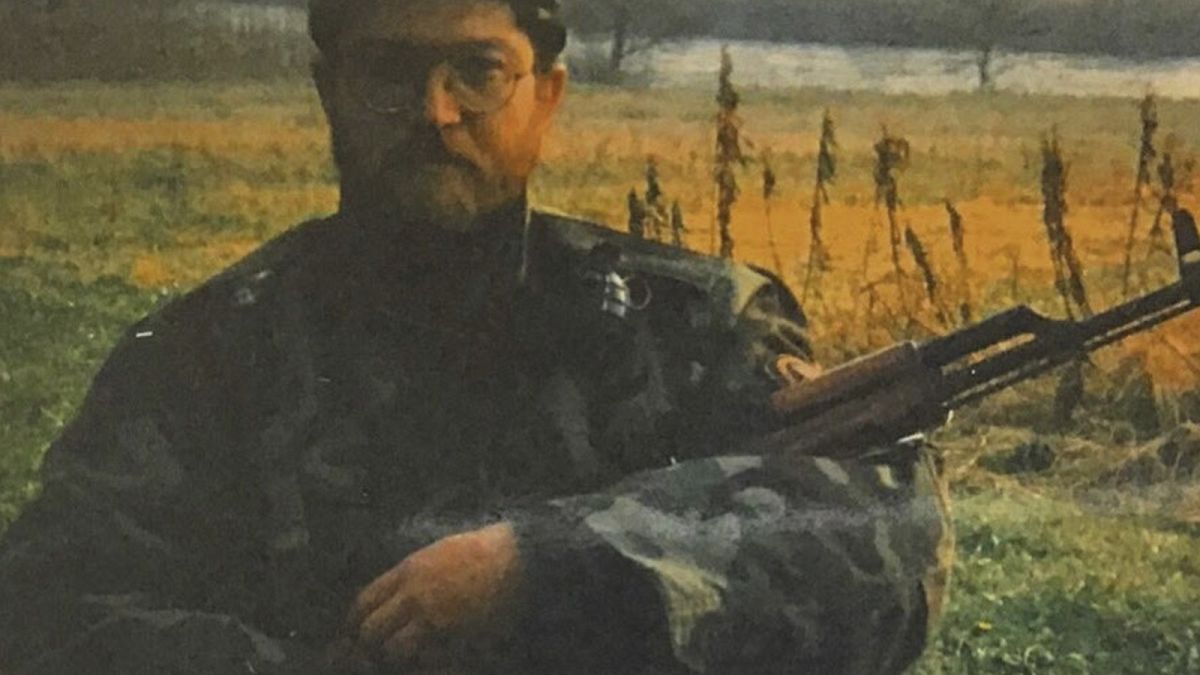ADVERTISEMENT
A social media post by the European Parliament’s rapporteur for Serbia Tonino Picula created a stir in Croatia’s neighbour and prompted calls for his removal from his position.
Picula, a member of Croatia’s centre-left SDP party, tweeted on Tuesday to commemorate the 30th anniversary of the Operation Storm, a military operation that effectively put an end to the ethnic Serb parastate and the years-long war in the country.
In the photo, a visibly younger Picula in military uniform brandishes a variant of the Kalashnikov assault rifle.
“Let us thank everyone who contributed to the defence of the sovereignty and freedom of the Republic of Croatia,” the post read.
Reactions were swift. Following the condemnation on social networks and in Serbian media, opposition SSP party leader Dragan Đilas criticised Picula, saying the MEP “compromised his position … because you can’t be a rapporteur with an automatic gun in your hands.”
“We believed you were a man of the future and not of the past. And it was like that until today,” Đilas said in a statement on Tuesday.
Austrian MEP Harald Vilimsky from the far-right Freedom Party (FPÖ) and European spokesperson for the Vienna FPÖ parliamentary group Maximilian Krauss slammed what they said was “disturbing and politically highly dangerous”.
“It is completely inappropriate for an EU rapporteur, who plays a key role in the sensitive dialogue between the EU and Serbia, to post a picture in combat gear, thereby offending many people. This is a serious diplomatic misstep,” Vilimsky said in a statement released on Tuesday.
“With this post, Picula has impressively demonstrated that he is unsuitable for this role. Anyone who publicly celebrates a military presence while simultaneously issuing constitutional recommendations to Serbia is squandering all credibility. This is an affront to all the victims and displaced persons of this tragedy,” Krauss added.
The two FPÖ politicians have requested an immediate investigation into Picula’s actions by relevant EU authorities, they said.
Picula has rejected any allegations of his bias, stating his participation in Operation Storm as part of the Croatian army was always public knowledge.
“The quality of my work as a standing rapporteur is best demonstrated by the successful negotiations on the report on Serbia, as well as the convincing support for the report at the plenary session of the European Parliament. If I were biased or not objective, such support would not have been possible,” Picula told Euronews.
“Thirty years ago, I was a member of the Croatian army that liberated the previously occupied parts of my country. That has always been public information,” he pointed out.
“It’s disputed only by those who still today avoid taking responsibility for the policy that has caused enormous human suffering and material destruction in Croatia, Bosnia and Herzegovina and Kosovo since the early 1990s.”
“My life experience and political career only help me, as a standing rapporteur for Serbia, to better understand the processes that are still blocking Serbia on its European path,” he added.
Contested issue, three decades later
Operation Storm, which took place over the course of four days in early August 1995, remains a contested issue between the two neighbouring countries.
Croatia’s declaration of independence from the former Yugoslavia in 1991 triggered a rebellion by minority ethnic Serbs who took control of about one-fifth of the country’s territory in the Belgrade-backed parastate of the Republic of Serb Krajina. Croatia retook all of its territory in the 1995 military action.
UN estimated that around 150,000 ethnic Serbs fled to what is today Serbia and Montenegro, and between 10,000 and 15,000 arrived in the general area of Banja Luka in neighbouring Bosnia. Serbia claims the number surpasses 250,000, on top of numerous civilian victims during the offensive.
Most ethnic Serbs have not returned to Croatia following Operation Storm, and the minority now comprises around 3.2% of Croatia’s population, according to the 2021 census, significantly less than 12.2% in 1991.
Picula has faced criticism from Belgrade in the past. In May, Serbian Parliament Speaker Ana Brnabić accused Picula of interference in the domestic affairs of the Western Balkan country after Picula retorted that the statements of President Aleksandar Vučić were becoming “more and more bizarre”.
Brnabić accused the Croatian MEP of being part of a witch hunt against a sovereign country, saying, “Picula, stay away from Serbia”. Picula has consistently rejected accusations of harbouring “anti-Serb” sentiments.
“This is not the first attempt to put me in the corner. My removal has been sought by the regime in Belgrade since day one,” he said in a statement to Euronews on Wednesday.
“Serbia has long been in internal problems from which it cannot find a way out. These problems are much older than my appointment as a standing rapporteur.”
“I would like them in Serbia to show at least the same sensitivity to the reasons for stagnation as they show to parts of my biography,” Picula concluded.
This article has been updated to include comments from MEP Tonino Picula.
Read the full article here


